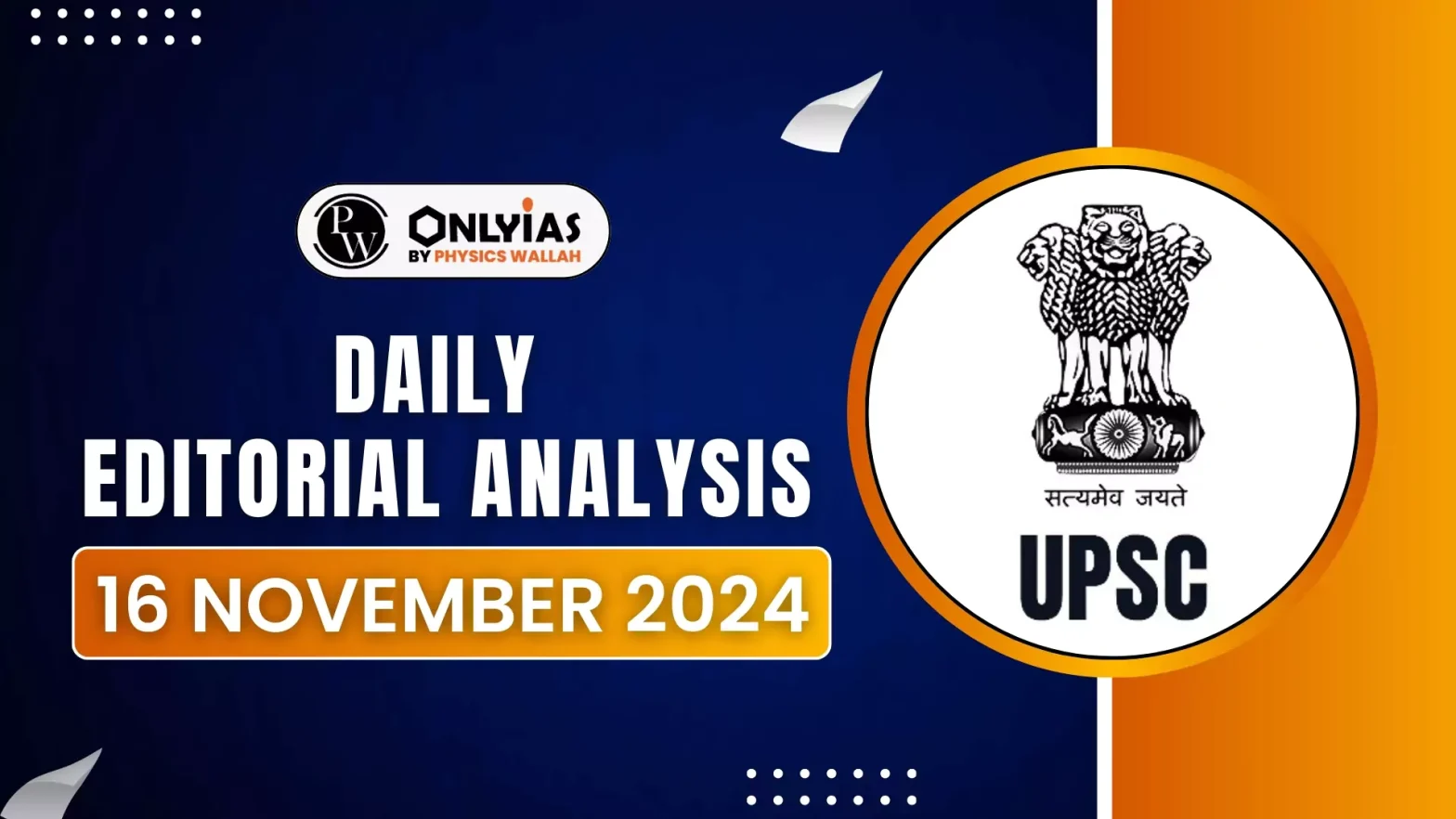Recently, the Supreme Court’s 7-judge bench, by a 4:3 majority, overruled the 1967 S. Azeez Basha judgement and left the issue of Aligarh Muslim University’s minority status under Article 30 to be decided by a regular bench.
Timeline of the AMU Dispute
- Establishment and Importance of AMU:
- Founded in 1877 by Sir Syed Ahmad Khan as the Muhammadan Anglo-Oriental College, later becoming AMU.
- Aimed at promoting education and cultural enrichment among Muslims in India.
- The 1967 S. Azeez Basha Case:
- Supreme Court ruled that AMU, being incorporated by a statute, could not claim to be a minority institution.
- Held that minority status requires both establishment and administration by the minority community.
- The 1981 AMU Act Amendment:
- The Union government amended the AMU Act to grant it minority status.
- The 2006 Allahabad High Court Ruling:
- Struck down the 1981 amendment, declaring AMU was not a minority institution.
- Declared the amendment illegal, reinforcing the earlier interpretation of minority status.
- The 2024 Supreme Court Judgement:
- Overruled the 1967 S. Azeez Basha judgement.
- Recognized that an institution incorporated by a statute could still claim minority status.
- Minority institutions, even if not fully governed by the minority community, can be recognized as “institutions of national importance,” highlighting minorities as integral to the nation.
- The judgement adopts a liberal stance on minority rights, prioritising the intent of minority communities to establish and administer institutions.
- Marked a significant shift in legal interpretation, reaffirming AMU’s minority status.
Enroll now for UPSC Online Course
| Note: Article 30 of the Constitution guarantees minorities the right to establish and administer their educational institutions. |
Key Insights on Judicial Consensus and Dissent of the AMU 2024 Judgement
- Split Verdict but Broad Agreement:
- The final ruling on the 1981 reference was split 4:3, while the 2019 reference was decided 6:1 in favour of validating the reference made by the bench led by former Chief Justice D.Y. Chandrachud.
- All judges, including dissenters, broadly agreed on a flexible and holistic approach to determining an institution’s minority character, emphasising intent to establish and administer as key criteria.
- Nuanced Dissent:
- What seemed like dissent was, in fact, alignment on key interpretations of Article 30 of the Constitution, which protects minority institutions.
- Justice Dipankar Datta concurred with the two dissenting judges on several points but differed on specific aspects.
- The dissenters emphasised the significance of the AMU Act but acknowledged that statutes alone cannot decide an institution’s minority status.
- Evolution of Constitutional Jurisprudence:
- The ruling highlighted the Supreme Court’s role in revising outdated judgments, ensuring the Constitution evolves with contemporary realities.
- Examples include overruling A.K. Gopalan (1950) in Maneka Gandhi (1978) and M.P. Sharma (1954) in K.S. Puttaswamy (2017).
- Right to administer:
- Justice D.Y. Chandrachud emphasised that the “right to administer” is a consequence of establishing an institution, not a pre-condition.
- This aligns with the Basha (1967) judgement, which held that a minority institution, once established, gains the right to administer it.
- Judicial Discipline vs. Administrative Rights
- Dissenting judges highlighted judicial discipline but noted limitations in expanding administrative rights beyond the 2002 T.M.A. Pai ruling, which limits rights to areas like student selection, fee setting, and staff management.
- The Xavier’s (1974) case confirmed that minorities cannot bypass legal norms under the guise of exclusive management rights
- Article 30 focuses on choice, applying to both establishment and administration of institutions.
- Focus on the Incorporating Act in Dissent
- Dissenting judges emphasised the incorporating Act’s role in governance, but past rulings like Xaviers (1974) clarified that statutes can’t strip fundamental rights of minority institutions.
- The Chief Justice noted that simply mentioning a founder in a statute does not affect the institution’s minority status.
- Governmental Control and Its Impact
- Applying the “overriding governmental control” test to other institutions would show they face more government control than AMU, including powers to dissolve minority universities.
- Courts allow regulation of minority institutions to ensure efficiency and standards, but these controls shouldn’t affect their minority status.
- Regulation in the Interest of Non-Minorities
- Government control is mainly aimed at protecting non-minority students and ensuring fair administration.
- Such regulations don’t undermine the minority status but help the institution operate fairly and efficiently for all students.
Where the AMU Judgments Fell Short
- Justice Datta’s Errors:
- ₹30 Lakh Fundraising: Justice Datta wrongly stated that ₹30 lakh was not raised for AMU’s establishment, overlooking a 1912 letter from Harcourt Butler that made it a condition for AMU’s incorporation.
- Ignoring Continuity with M.A.O. College: Justice Datta failed to acknowledge that AMU inherited the debts, liabilities, privileges, and rights of M.A.O. College, which was recognized as a minority institution, thus AMU should naturally hold the same status.
- Majority’s Mistake on Surrender of Rights
- The majority mistakenly believed AMU’s minority rights were surrendered. This contradicts past rulings, including:
- Basheshar Nath (1959): Held that fundamental rights cannot be waived.
- Xaviers (1974): Stated that minority rights under Article 30 cannot be “bartered or surrendered.”
|
Check Out UPSC Modules From PW Store
Conclusion
By overturning the 1967 Azeez Basha judgement, the Court has paved the way for AMU to potentially reclaim its minority status. The final decision will have far-reaching implications for minority educational rights and set a precedent for similar institutions across India.
![]() 16 Nov 2024
16 Nov 2024

